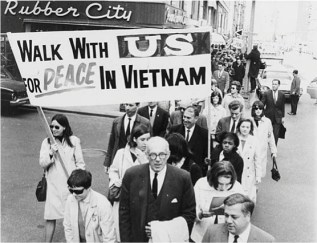 I relate to the nine-word problem. It is the superficial understanding of race and racism in the United States.
I relate to the nine-word problem. It is the superficial understanding of race and racism in the United States.
As someone who has spent some time providing programming about Black History Month this century, I recognize that there’s much more to know and that much of it had been hidden. Indeed, many of the things I’ve written about in this blog about race are things I did not know at the turn of the Millennium. I, too, am learning about what’s going on.
Some of it is historical: for instance, the Red Summer of 1919 and Tulsa. Other aspects are ongoing: misogynoir; The Color of Law’s look at redlining; the unjustified killing of a black man redux.
Then there’s appropriation. Even about Martin, I’ve tried to expand the discussion beyond one address. I’ve linked to several speeches before and after 1963, usually posted around his birthday. Also, MLK is Not Your Wingman.
The Largest Civil Rights Protest You’ve Never Heard Of
On February 3, 1964, there was a massive protest in the United States.
“’Selma!’”
“’Birmingham!’”
“’Washington, D.C.!’”
“My students slowly rattled off cities that came to mind. I had asked them, ‘Where did the largest civil rights protest of the 1960s take place?’ Their answers, building off the traditional civil rights narrative they had learned in elementary and middle school, mostly consisted of Southern cities. They were wrong. The real answer is New York City, where most of my students were born and raised…
“The real Civil Rights Movement was not just about tearing down legal barriers but about economic inequality, police brutality, and access to quality education and healthcare. This movement was national in scope, led by young people, and confronted segregation and racism in both the North and the South. In many ways, this movement was unsuccessful in places like New York City, leading to a deepening of some aspects of structural racism and segregation that exist to this day. The real history of the Civil Rights Movement, therefore, is not simply a narrative of success. It’s a narrative that helps us understand today’s institutional racism, because many aspects of racial injustice that the Civil Rights Movement fought against were never remedied.”
Segregation in NYC
This was an issue of redlining, which created inequitable schools. “By 1964, frustrations with the poor education Black and Puerto Rican students were receiving in New York led civil rights leaders to call for a one-day boycott of all schools. In the 10 years between the Brown decision and the boycott, segregation in New York City schools had quadrupled.
“Though the boycott was a huge success — nearly half of all students in New York City stayed home that day — internal tensions within the coalition that had pulled it off led to its collapse in the following months.
The New York Times editorialized against the action, titled “A Boycott Solves Nothing.” The piece “condemned the ‘reckless’ civil rights leaders who are ‘hellbent on staging’ a ‘violent, illegal,’ ‘utterly unreasonable and unjustified’ boycott, despite the school board’s well-meaning attempts to integrate schools,” even though the action was none of the above.
The poetry section of the post
Let America be America again.
Let it be the dream it used to be.
Let it be the pioneer on the plain
Seeking a home where he himself is free.
(America never was America to me.)
Let America be the dream the dreamers dreamed—
Let it be that great strong land of love
Where never kings connive nor tyrants scheme
That any man be crushed by one above.
(It never was America to me.)
O, let my land be a land where Liberty
Is crowned with no false patriotic wreath,
But opportunity is real, and life is free,
Equality is in the air we breathe.
(There’s never been equality for me,
Nor freedom in this “homeland of the free.”)

 Mia Birdsong is the host of
Mia Birdsong is the host of 
 In response to
In response to  For some, May 4 has that Star Wars thing going. But for me, it’s always about Kent State, at least since 1970, when four young people were killed at a university in Ohio for conducting a war protest. I’ve written about it before, most extensively
For some, May 4 has that Star Wars thing going. But for me, it’s always about Kent State, at least since 1970, when four young people were killed at a university in Ohio for conducting a war protest. I’ve written about it before, most extensively  When I watched The Vietnam War, the PBS series by Ken Burns and Lynn Novick, in October 2017, I was naturally drawn to the music. Here is
When I watched The Vietnam War, the PBS series by Ken Burns and Lynn Novick, in October 2017, I was naturally drawn to the music. Here is